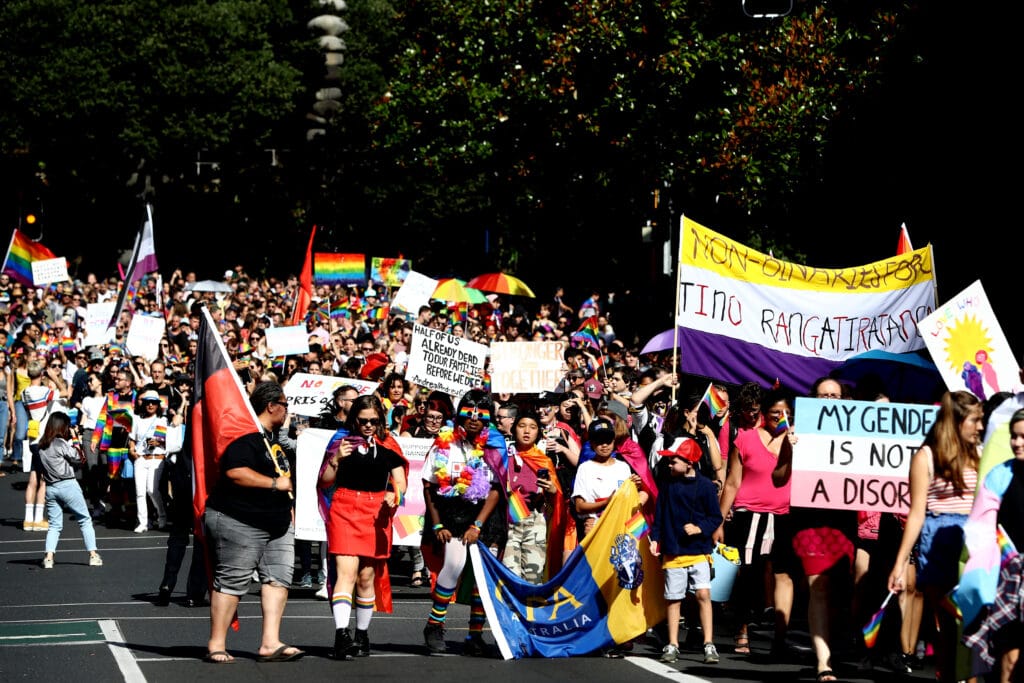New Zealand bans dehumanising conversion therapy in landslide vote

New Zealand passes conversion therapy ban while UK continues to delay (Mark Mitchell-Pool/Getty Images)
New Zealand’s parliament has near-unanimously passed legislation that bans LGBT+ conversion therapy, with a government minister stating that it marks a “great day for New Zealand’s rainbow communities”.
Reuters reported that the bill passed on Tuesday (15 February) with 112 votes in favour and eight votes opposed.
“This is a great day for New Zealand’s rainbow communities,” minister of justice Kris Faafoi said.
“Conversion practices have no place in modern New Zealand.”
Under the legislation, it will be an offence to perform conversion therapy where the practices have caused “serious harm”, and offenders can be subject to up to five years imprisonment.
When the victim is a child or young person aged under 18, or someone with impaired decision-making capacity, conversion therapy will automatically be an offence, and will be subject to up to three years imprisonment.

LGBT Pride in Auckland, New Zealand in 2019 (Photo by Hannah Peters/Getty Images)
The ban on conversion therapy follows recent comprehensive bans in France, Canada, and Albania, while campaigners in the UK pushing for an end to conversion therapy have been met with years of delays.
In 2018, the British government pledged to ban conversion therapy, however progress has been slow. In October 2021, the government opened a six-week consultation on the ban. However, the process was delayed as the government extended the consultation by the further eight weeks in December 2021, to 4 February.
The Tories, having already spent the best part of fours years teasing a ban, are yet to lay out next steps.
Campaigners have criticised the proposed ban for “falling short” of what is needed to be effective, as a “loophole” for “religious counselling” would permit some forms of faith-based conversion therapy to continue being practised.
Jayne Ozanne, chair of Ban Conversion Therapy, said: “The current proposals fall far short of even the current best international practise… particularly as they create such significant loopholes that will allow the majority of this demeaning abuse to continue.”

